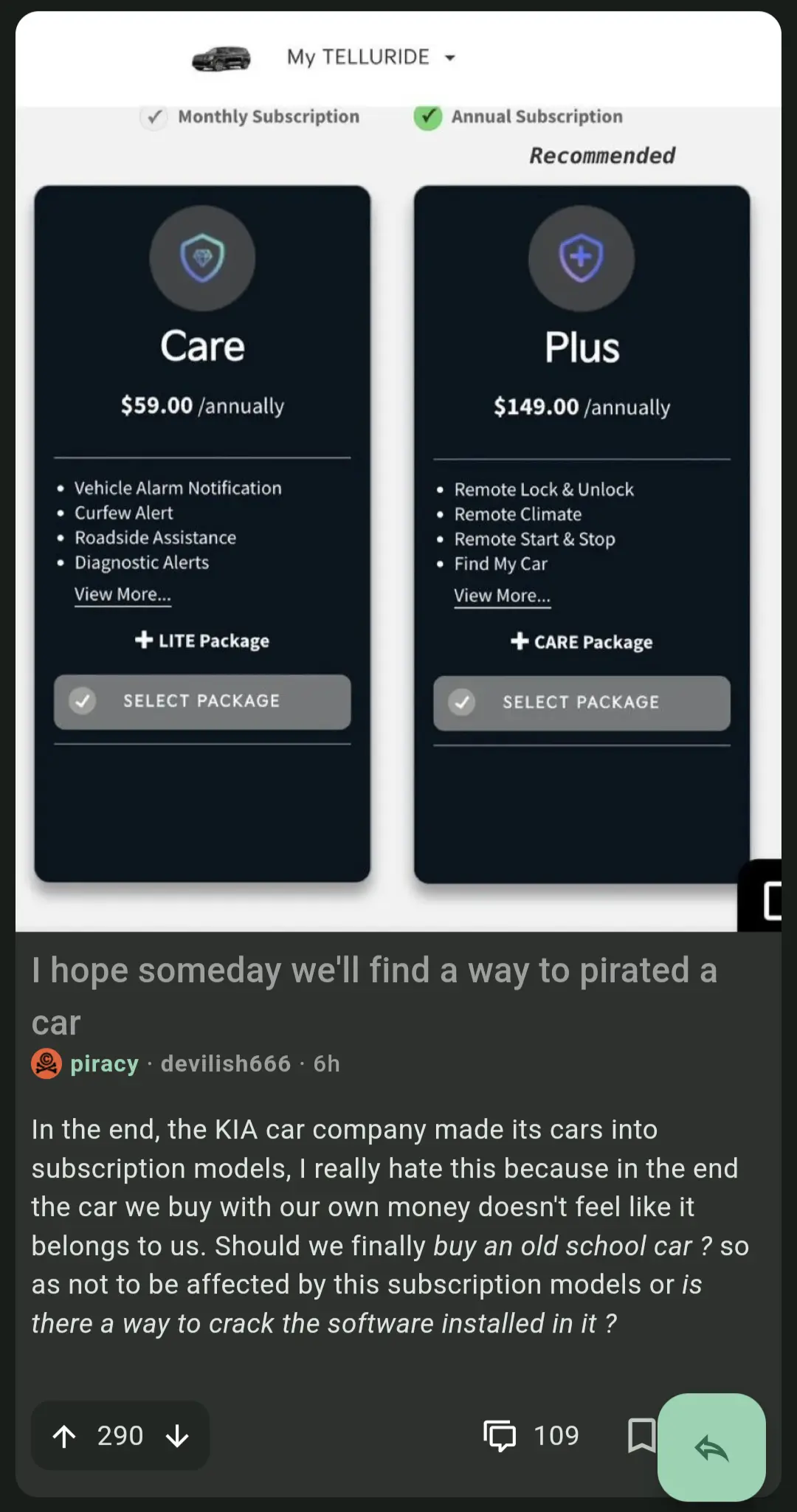Biden shouldn't give money to the auto industry or anyone who supports them. He should spend money on things that actually solve the problem: huge grants to build bike lanes and super blocks in cities, national high speed rail, and local rail networks.
He could literal give away eBikes to people who can't afford them. Manufacturing infrastructure for those already exists and there's actually enough lithium available to make that happen.
The problem isn't that work takes time and money, it's that this is a huge subsidy to the auto industry who are the absolute last people who should ever be involved in any kind of climate solution.
Edit: this isn't even a new thing. The auto industry sold hydrogen fuel cells as the solution last time and it turned out to just be a giant grift to buy more time to sell cars and take a bunch of money from the government. Why are you letting the same people fool you again?


You're going to trust the exact same industry that grifted away 10 years and billions of dollars on hydrogen fuel cells only to switch to the promise of EVs when the grift ran out? Good luck with that.
How much power would be needed to switch to EVs everywhere? Where does that power come from? Recognizing that manufacturing and transportation are also extremely carbon intensive, would we actually be better off switching or is this just another opportunity to dump money in to the auto industry?
The US had massive rail infrastructure in the past. We know that's possible. I don't have any evidence that electric vehicles would actually improve things even if they can be rolled out. Why would I believe an industry that has lied before and has every incentive to lie again? Why would anyone?